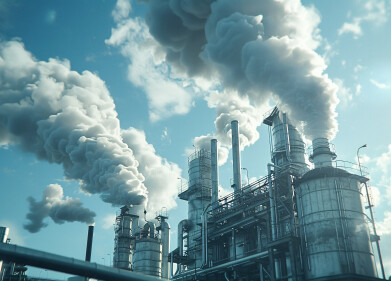Fuel for Thought
LEGO reconsiders certain recycled feedstocks as carbon emissions fail to fall
Oct 01 2023
In the contemporary race towards a more sustainable and ecologically balanced world, companies, both big and small, are reassessing their environmental footprints and seeking innovative solutions to mitigate their impacts on the environment. LEGO, the toy giant, is under particular pressure as it confronts the complex, intricate landscape of sustainability and environmental conservation as a company that is foundationally reliant on plastics.
World famous for its iconic bricks, LEGO has, in recent years, been actively re-evaluating its efforts to transition from oil-based plastics to more sustainable, recycled materials after discovering unexpected repercussions—higher carbon emissions. The prototype brick, manufactured from recycled plastic bottles, had initially seemed a promising venture to replace the oil-based ABS currently used in the vast majority of LEGO pieces.
However, CEO Niels Christiansen revealed that utilizing recycled polyethylene terephthalate (RPET) necessitated new production equipment, which inadvertently led to an elevation in the lifetime carbon emissions of the product. Such difficulties highlight the scale of the challenges companies are navigating in their pursuit of eco-friendly solutions, where different sustainability goals, such as diminishing carbon emissions and phasing out fossil fuels, might clash.
In 2018, LEGO had successfully commenced its sustainability journey by replacing oil-based polyethylene feedstock with a plant-based counterpart in several pieces. The company’s ambitious blueprint included a complete transition from petroleum-based plastics in its diverse range of products by 2030 and the elimination of single-use plastic packaging by 2025.
However, replacing ABS, the backbone of LEGO’s renowned “clutch power,” posed significant challenges. Tim Brooks, LEGO’s Chief of Sustainability, compared the endeavour to “trying to make a bike out of wood rather than steel,” emphasizing the struggle to replicate the safety, durability, and energy efficiency of ABS with recycled PET.
To address these challenges, LEGO is exploring avenues to incrementally incorporate more bio-based and recycled materials into ABS components, enhancing sustainability without compromising product quality. Although this piecemeal approach makes it exceedingly difficult to quantify emission reductions initially, Christiansen is optimistic that these incremental changes align with LEGO’s sustainability vision for 2032, which includes a commitment to achieving a 37% reduction in emissions from 2019 levels and utilizing only sustainable materials by 2032. It plans to escalate its investment in sustainability initiatives to $430 million per year by 2025, emphasizing a multifaceted approach focusing on lower emissions and the exploration of potentially circular materials.
Additionally, LEGO’s Replay program exemplifies its commitment to a circular business model, allowing the donation of used bricks, which are then refurbished and redirected to charities. This initiative is part of a broader strategy to explore commercial models that incentivize consumers to return old sets, fostering a cycle of reuse that surpasses the benefits of recycling.
LEGO’s recalibration of its sustainability approach underscores a crucial learning for industries globally: the journey to sustainability is not a linear one. It requires constant reassessment, learning, and adaptation to balance ecological benefits with practical feasibility. While the pursuit of a "magic material" continues, the incremental advances in material science and sustainability strategies are pivotal in steering the global community towards a greener future.
Digital Edition
PIN 25.5 Oct/Nov 2024
November 2024
Analytical Instrumentation - Picturing Viscosity – How Can a Viscometer or a Rheometer Benefit You? - Sustainable Grease Formulations: Evaluating Key Performance Parameters and Testing Method...
View all digital editions
Events
Dec 03 2024 Dusseldorf, Germany
Dec 08 2024 Anaheim, CA, USA
Turkey & Black Sea Oil and Gas
Dec 11 2024 Istanbul, Turkey
Dec 19 2024 Aurangabad, India
Jan 20 2025 San Diego, CA, USA



















